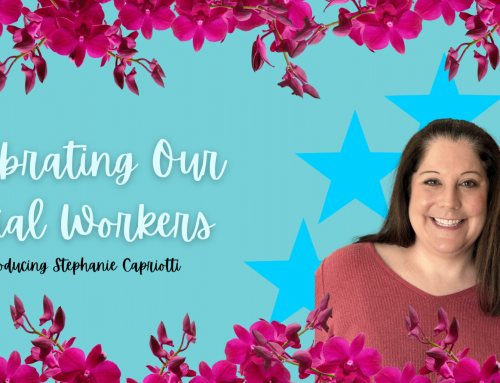If you and your spouse are older, you might think that you’re too old to adoptive parents. That’s not true, however. Here are some tips and information to help you through the process.
 Rely On Your Experience
Rely On Your Experience
If you’re a parent to older children who have moved out of the home, you’ve already been down the parenting road before. You can rely on your experience to guide you in expanding your family. Ask yourself: What do you know about parenting that you can use to raise your waiting child? Do you want to experience the joy of parenting a toddler? Or, would you prefer to parent an older child?
There are benefits to both options.
For example, when you adopt a waiting child who is just a baby or toddler, you can re-experience what it’s like to parent a child through those bottle-feeding and potty-training years. On the other hand, many older prospective adoptive parents want to skip past the toddler years and adopt an older waiting child, perhaps one who is a pre-teen or teen. Older waiting children may present special challenges but also may be especially rewarding.
For example, if a waiting teen has been through many foster homes, there may be abandonment issues the child is facing. It’s a tough truth that many older parents face. Bonding with a prospective adoptive parent is especially important in these situations but can also be challenging because the teenager may have their own thoughts, may be becoming increasingly independent, and may wish to challenge authority or boundaries.
In these situations, patience is a virtue and a skill that you will need to cultivate. Fortunately, if you’re an older prospective adoptive parent, you’ve had more time to develop this skill, and your life experience may serve you well.
If you’ve had children before, you know the types of challenges teens can present to you as a parent. These may also be some of the greatest years of both yours and your waiting child’s life.
Focus On The Positive
Even if you’ve never been a parent before, now is an excellent opportunity for you to start a family. You have a lot of life experience to offer the child, and that life experience may also help you in parenting. You are more likely to have the emotional maturity and stable values. Hopefully and importantly you are likely closer to mastering patience than younger counterparts.
Regardless of whether or not you’ve already been through parenthood, you have more general experience in life and how to handle difficult situations which is an advantage when parenting at an older age.
Many couples wait until they are financial stable and in their prime earning years to raise a child, which typically doesn’t happen until after 40. But, this is great news for a waiting child. It means that you have the financial resources to devote to parenting without worrying about being crunched for money when your child needs something.
If you can afford to send your child to private school, he or she will get a great education. And, if you can’t, you may be able to help them in other ways that you could never do when you were younger.
For example, you may be able to help them save money for a future college education if they want to attend college. If you were in debt as a teenager, through your 20s and 30s, this simply wouldn’t be possible.
You Can Adopt
It’s not uncommon for older prospective adoptive parents to feel like they can’t parent while thinking “I’m too old.” But, you don’t need to be a superman or superwoman to be a parent. Even if you feel you lack the energy of a younger parent, you may also have more patience and understanding.
The truth is that there are successful parents who are blind and wheelchair-bound, both young and old. There is no general parenting archetype anymore.
There Are Many Adoption Options
While domestic adoption is very popular, international adoption may also be a viable route for older applicants as several foreign countries show a preference for older prospective adoptive parents when they have older children waiting for families.
Do You Have other Familial Responsibilities?
 In many states, there are filial responsibility laws on the books which allow states to enforce regulations that require you to take care of your indigent parents. Before you adopt a waiting child, it may be beneficial for you to look into the filial responsibility laws in your state, if your state has them.
In many states, there are filial responsibility laws on the books which allow states to enforce regulations that require you to take care of your indigent parents. Before you adopt a waiting child, it may be beneficial for you to look into the filial responsibility laws in your state, if your state has them.
These laws allow nursing homes to pursue you (through legal action) for the unpaid nursing home and medical bills of your parents. A 2012 court case highlights the severity of these laws and how they could impact your own future.
In Health Care & Retirement Corporation vs. Pittas, the court ruled that John Pittas was responsible for his mother’s nursing home bill – nearly $93,000. Maryann Pittas, John’s mother, fled the country to Greece but failed to pay her nursing home bill. The nursing home then came after John for the money, and won.
This case was significant because, unlike previous cases, the court did not find that John had engaged in any fraudulent transfers to divert or hide his mom’s assets.
What does this mean? It means that some states may choose to adopt a more aggressive view of current filial responsibility laws. If your parents need care in their old age, and you live in a state with such laws, can you take care of them and your child? It’s something to think about before pursing any adoption options.
Consider Prospective Adoptive Parental Education
If you haven’t been a parent for a while, or if you’ve never been a parent, many agencies offer low cost or even free educational services, pamphlets, books, and courses that help you prepare for a waiting child.
These educational materials are designed to be fun, informative, yet also thorough enough to prepare you for parenthood.
Focus On Your Health
How healthy are you? One thing many older parents are concerned about is their health. This is especially true if they’re considering adopting a child from abroad. You may have to visit another country that’s less developed than the U.S. You may have to endure long bus rides, squat toilets, unfamiliar food, hard beds, no air conditioning, long walks, and a language you don’t speak or understand well.
You may need to learn new customs and a culture you may not be familiar with or agree with. You may also need to make several trips to this country as a prospective adoptive parent.
While many older prospective adoptive parents want to focus on the child throughout the process, it’s also a good idea to focus on yourself and your own health.
If you haven’t had a checkup with your doctor inside of a year, now might be the perfect time to do it. You may also want to consider having more advanced blood testing done, including a full hormone profile, and gut pathogen screen before and after your visit, in addition to routine lipid panels.
A micronutrient panel will uncover any nutritional deficiencies, which will be important for you to understand, especially if you plan on extending your stay in the country while you search for a waiting child.
If the adoption option you choose involves travelling overseas, research the laws of the country you will be visiting and its regulations concerning importation of medication.
Some older prospective adoptive parents go so far as to start an exercise regimen and change their diet and lifestyle – all to prepare for parenthood.
Take Time For Bonding When You Get Home
Many adoption agencies recommend that new adoptive parents avoid overstimulation of their children. Some, but not all, waiting children may be anxious about moving to a new home, especially if they are moving from another country.
Some experts also recommend spending a week or two at home with the child alone with just a few activities scheduled. This may better facilitate bonding with the child and allow both you and your child to settle in and become adjusted to your expanded family.
This may be especially good for you if you’re older or have less energy than you used to. Many parents also find this initial one-on-one time to be irreplaceable and invaluable in cementing the beginning of a lifelong relationship.

 Rely On Your Experience
Rely On Your Experience




I’m thankful you assured us that it’s not uncommon for older prospective parents to consider adoption despite their age since they might have more patience and understanding than younger parents. My aunt is in her 40s, and since she always wanted a child of her own, she has been thinking of adopting for some time now. I’ll make sure to assure her with this while I help her find an adoption agency to consider checking soon.
I am a very healthy 71 yr. old. My parents lived till late 90’s. I have never had a biological chil, however i have three grown godchildren, that I helped raise. I also have had many children in my life through work. and making friendships during covd. I would love to adopt a young girl. This is the first time in my life i am financially sound. I am a loving patient woman with good moral values.